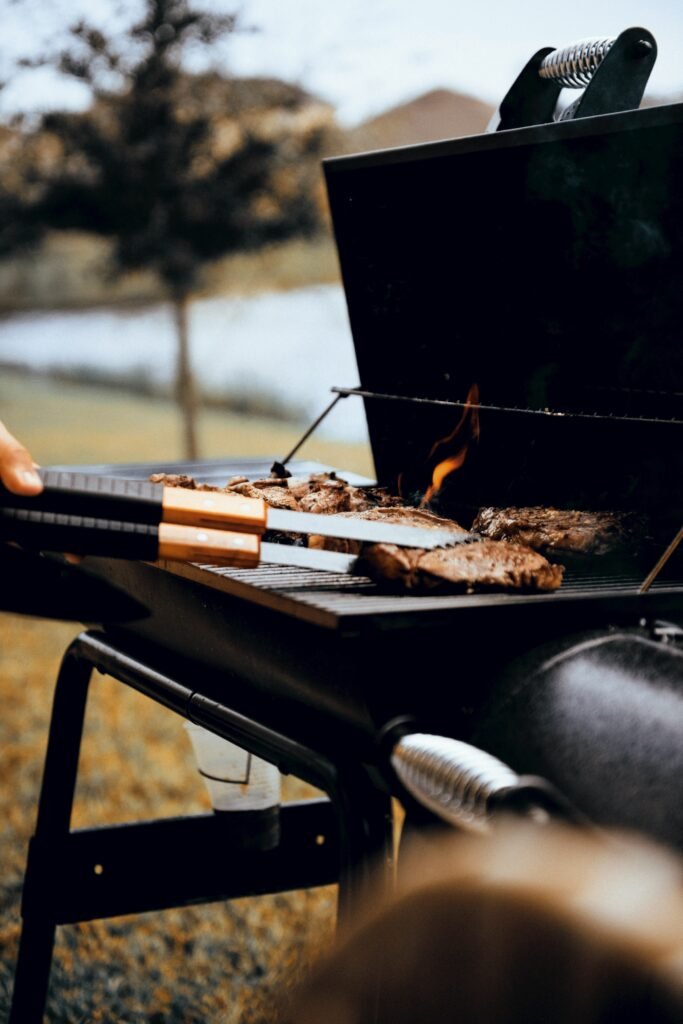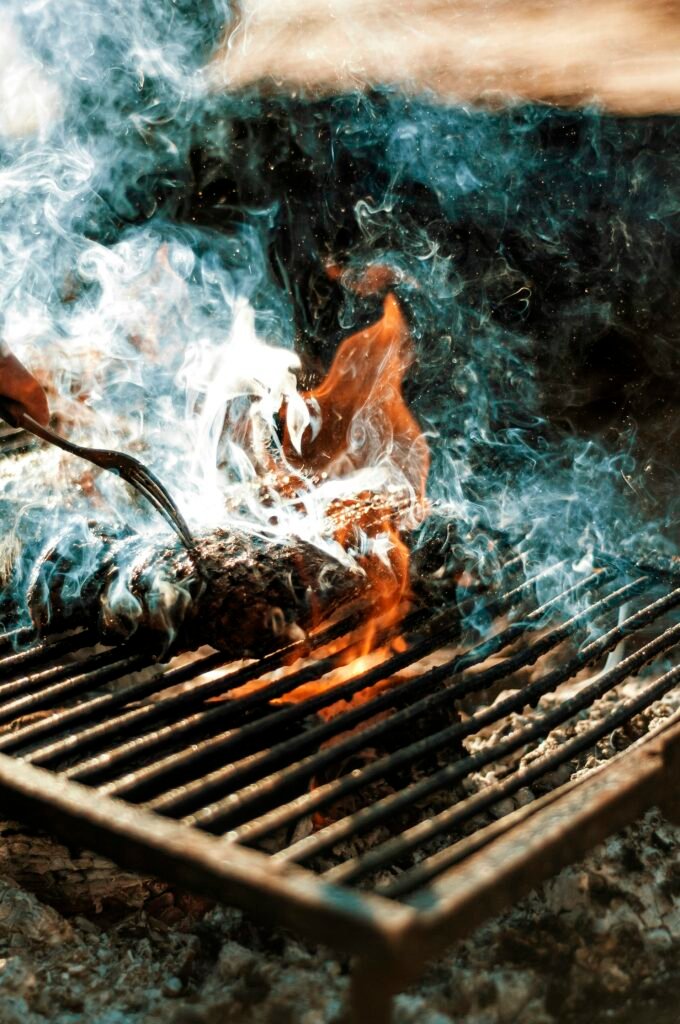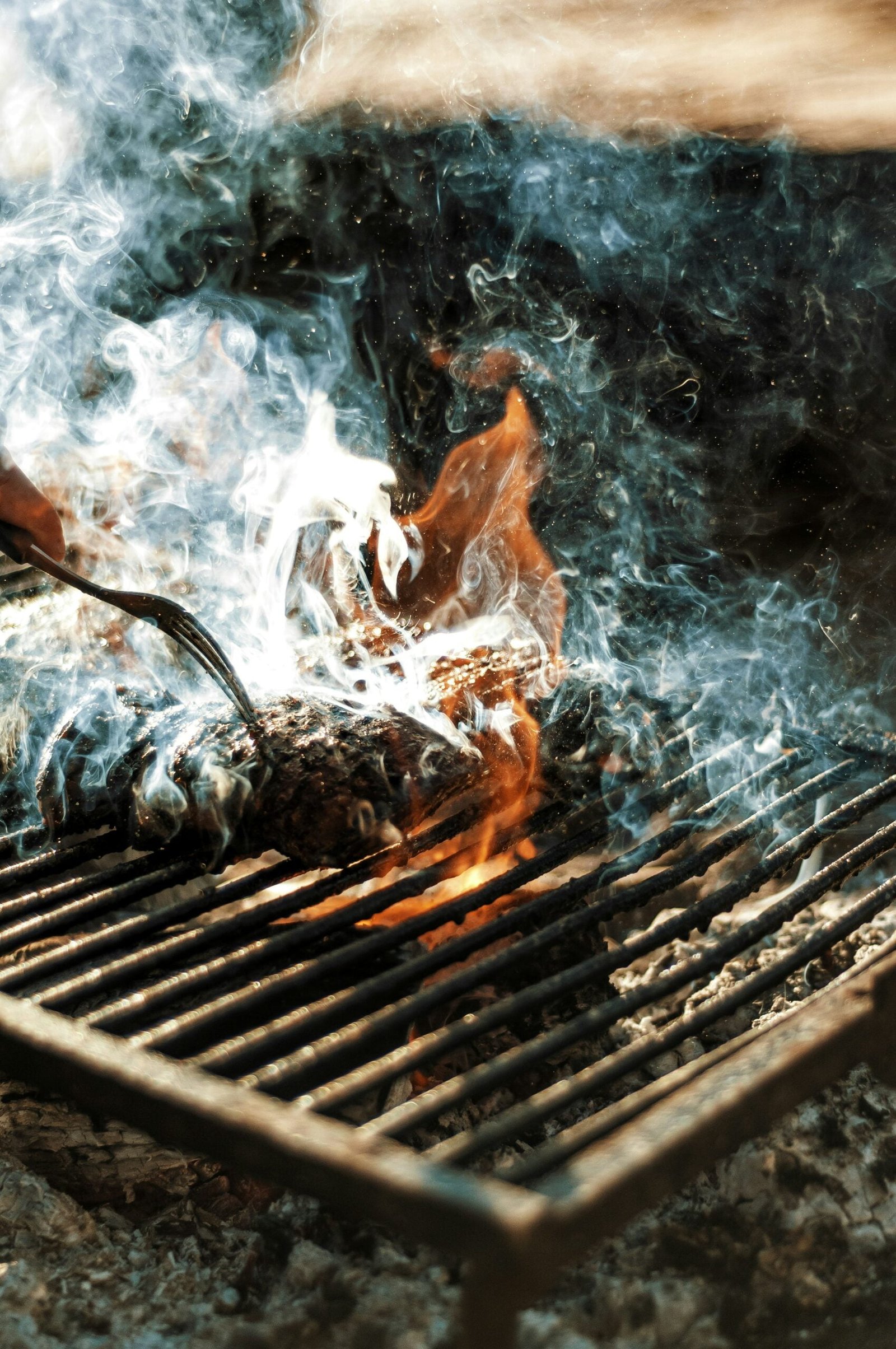If you’re a grill enthusiast, you may have found yourself pondering the age-old question: do I need to season stainless steel grill grates? Well, fret no more, because we have the answer for you. Seasoning stainless steel grill grates might not be as common as it is for cast iron, but it can still make a world of difference when it comes to your grilling experience. In this article, we’ll explore the benefits of seasoning stainless steel grill grates and provide you with some simple steps to achieve mouthwatering results every time you fire up the grill.

Understanding Stainless Steel Grill Grates
What is stainless steel?
Stainless steel is a type of steel alloy that contains a minimum of 10.5% chromium. This composition gives stainless steel its unique properties, including corrosion resistance and the ability to withstand high temperatures. It is commonly used in the manufacturing of various kitchen appliances, including grill grates.
Types of grill grates
There are different types of grill grates available in the market, and stainless steel is one of the popular options. Other commonly used materials for grill grates include cast iron and porcelain coated grates. Each material has its own advantages and disadvantages, but stainless steel grill grates are preferred by many due to their durability, heat retention, and ease of cleaning.
Benefits of using stainless steel grill grates
Using stainless steel grill grates offers several benefits. Firstly, stainless steel is corrosion-resistant, which means it can withstand exposure to moisture and high temperatures without rusting. This makes it a long-lasting option for grill grates. Secondly, stainless steel has excellent heat retention properties, allowing for even and consistent cooking. Additionally, stainless steel grill grates are easy to clean, requiring minimal maintenance compared to other materials.
Defining Seasoning In Grill Grates
What is seasoning?
Seasoning, in the context of grill grates, refers to the process of applying oil or fat to the surface of the grates to create a non-stick coating and enhance their performance. This process helps to prevent food from sticking to the grates, allows for better heat distribution, and adds flavor to the cooked food.
Why is seasoning necessary?
Seasoning is necessary to create a protective layer on the grill grates, reducing the potential for rust and corrosion. It also helps to prevent food from sticking, making it easier to cook and clean. Additionally, seasoning enhances the flavor of the food by creating a natural non-stick surface that brings out the best taste and texture.
The process of seasoning grill grates
Seasoning grill grates involves a simple three-step process: cleaning the grates, applying oil, and heating the grates. First, the grates should be thoroughly cleaned to remove any debris or leftover food. Then, a thin layer of oil should be applied to the grates, ensuring all surfaces are coated. Finally, the grates should be heated to a high temperature for a certain period, allowing the oil to bond with the metal and create a protective layer.
The Need to Season Stainless Steel Grill Grates
Do stainless steel grates require seasoning?
While stainless steel grates are known for their durability and resistance to corrosion, seasoning is still beneficial for them. Seasoning helps to create a non-stick surface, enhances heat distribution, and adds flavor to the food. Although stainless steel grates may not require seasoning as frequently as cast iron grates, it is still recommended to maintain their performance and prolong their lifespan.
Reasons behind seasoning stainless steel
Seasoning stainless steel grates offers several advantages. Firstly, it creates a barrier between the food and the metal surface, preventing food from sticking and making it easier to clean. Secondly, seasoning enhances heat distribution by creating a smooth, non-stick surface, allowing for even cooking. Lastly, the oil used in the seasoning process adds flavor to the food, enhancing the overall grilling experience.
Comparison with other Grill Grate Materials
Stainless steel vs cast iron
Stainless steel and cast iron are two popular materials used for grill grates, each with its own strengths and weaknesses. Stainless steel grates are more resistant to corrosion and require less maintenance compared to cast iron grates. They also heat up faster and provide more even cooking. However, cast iron grates have better heat retention and can create impressive grill marks on the food. The choice between the two will ultimately depend on personal preferences and desired cooking results.
Stainless steel vs porcelain coated grates
Stainless steel and porcelain coated grates are both viable options for grill enthusiasts. Stainless steel grates offer durability, excellent heat retention, and ease of cleaning. On the other hand, porcelain coated grates have a smoother, non-stick surface that prevents food from sticking. However, porcelain coated grates can be more susceptible to chipping or scratching, while stainless steel grates can withstand high temperatures without damage.
Maintenance comparison of various types of grates
When it comes to maintenance, stainless steel grates have an advantage over other materials. They are easy to clean and maintain due to their corrosion-resistant properties. Stainless steel grates can be cleaned with a wire brush or grill brush to remove any stuck-on food or residue. On the other hand, cast iron grates require more meticulous cleaning and maintenance to prevent rust. Porcelain coated grates should be handled with care to avoid chipping or scratching the surface.

The Process of Seasoning Stainless Steel Grill Grates
Cleaning the grates
Before seasoning stainless steel grill grates, it is essential to clean them thoroughly. Use a wire brush or grill brush to remove any residual food or debris. You can also use warm soapy water to scrub away any stubborn residue. Rinse the grates thoroughly and ensure they are completely dry before proceeding to the next step.
Applying oil
Once the grates are clean and dry, it is time to apply oil. Choose an oil with a high smoke point, such as vegetable oil or canola oil. Pour a small amount of oil onto a paper towel or cloth and rub it onto the surface of the grates, coating all areas evenly. Make sure not to use too much oil, as it can cause flare-ups during cooking.
Heating the grates
After applying the oil, preheat the grill to a high temperature. This will help the oil to bond with the metal surface and create a protective layer. Allow the grates to heat for about 15-20 minutes, or until they are visibly hot. This process will ensure that the oil is properly seasoned into the grates.
Repeating the process
For optimal results, it is recommended to repeat the seasoning process a few times. Each time you season the grates, the non-stick coating will improve, making your grilling experience even better. Repeat the cleaning, oil application, and heating steps at least two to three times before using the grill for cooking.
Choosing the Right Oil for Seasoning
Types of oil suitable for seasoning
When choosing an oil for seasoning stainless steel grill grates, it is important to select one with a high smoke point. Oils with high smoke points can withstand the high temperatures generated by the grill without breaking down or releasing harmful fumes. Some suitable oils for seasoning include vegetable oil, canola oil, grapeseed oil, and peanut oil.
Factors to consider when choosing oil
While selecting the oil, consider the flavor it imparts to the food. Some oils, like extra virgin olive oil, have a distinct flavor that can enhance the taste of certain dishes. However, oils with neutral flavors, such as vegetable oil or canola oil, are often preferred for seasoning as they allow the natural flavors of the food to shine through.
Recommended oils for seasoning stainless steel grill grates
As mentioned earlier, vegetable oil, canola oil, grapeseed oil, and peanut oil are all suitable for seasoning stainless steel grill grates. These oils have high smoke points and neutral flavors, making them ideal for creating a non-stick surface and adding flavor to the food. Experiment with different oils to find the one that best suits your taste preferences and cooking needs.

The Role of Seasoning in Enhancing Food Flavor
How seasoning affects food taste?
Seasoning plays a crucial role in enhancing the flavor of grilled food. When you season stainless steel grill grates, the oil forms a non-stick layer that allows for better browning and caramelization of the food. This enhances the taste by creating a delicious crust and locking in the natural juices and flavors. The choice of oil used for seasoning can also contribute to the overall flavor profile of the food.
Impact on food texture
Seasoning grill grates can also have a positive impact on the texture of the food. The non-stick surface created by the seasoning process helps to prevent food from sticking, ensuring that it cooks evenly and develops an appetizing texture. It also minimizes the risk of tearing or crumbling delicate food items, such as fish or vegetables, when flipping or removing them from the grill.
Role in food safety
Properly seasoned grill grates contribute to food safety by reducing the risk of cross-contamination. The non-stick coating created by seasoning minimizes the chances of bacteria or other contaminants adhering to the grates and transferring to the food. It is essential to follow good hygiene practices in addition to seasoning to ensure safe and healthy grilling.
Seasoning Impact on Grill Grate Lifespan
How seasoning prolongs grate lifespan?
Seasoning stainless steel grill grates can significantly prolong their lifespan. The protective layer created by the seasoning process acts as a barrier against moisture and corrosive elements, preventing rust and corrosion from forming. This helps to maintain the structural integrity of the grates, ensuring they remain in good condition for an extended period.
Seasoning and rust prevention
Rust is a common issue with grill grates, especially those made of steel. However, seasoning the grates can effectively prevent the formation of rust. The oil used in seasoning creates a protective coating that acts as a barrier against moisture, oxygen, and other elements that cause rust. Regular seasoning helps to maintain this protective layer and extend the lifespan of the grates.
Seasoning and prevention of grates warping
Warping is another potential problem with grill grates, especially when subjected to high temperatures repeatedly. However, seasoning can help prevent grates from warping. The oil used in the process acts as a lubricant and minimizes the risk of metal-on-metal friction. This reduces the chances of warping and distortion, ensuring that the grates remain flat and functional for a longer period.
How Regularly Should You Season Your Grill Grates?
Determining the seasoning frequency
The frequency of seasoning your grill grates will depend on various factors, including how often you use your grill and the type of food cooked. As a general rule of thumb, it is recommended to season stainless steel grill grates every few months, or at least a couple of times per grilling season. However, if you notice the grates starting to stick or if their performance declines, it may be a sign that they need to be seasoned more frequently.
Signs that your grate needs seasoning
There are several signs that indicate your grill grates may need seasoning. If food starts sticking to the grates or your grill marks are less distinct, it is a good indication that the non-stick coating has worn off and needs to be replenished. Additionally, if you notice signs of rust or corrosion on the grates, it is crucial to re-season them as soon as possible to prevent further damage.
Aligning seasoning with cleaning schedules
To ensure optimal performance, it is advisable to season your grill grates after each thorough cleaning. Cleaning removes any residual food or debris, preparing the grates for the seasoning process. By aligning seasoning with your cleaning schedule, you can effectively maintain the non-stick coating and prolong the lifespan of your stainless steel grill grates.
Common Mistakes When Seasoning Stainless Steel Grates
Using the wrong type of oil
One common mistake when seasoning stainless steel grates is using the wrong type of oil. It is essential to choose an oil with a high smoke point to avoid it breaking down or releasing harmful fumes during the grilling process. Using oils with low smoke points, such as butter or extra virgin olive oil, can result in a smoky and unpleasant grilling experience.
Applying the oil improperly
Improper oil application can also affect the effectiveness of the seasoning process. It is important to apply a thin, even layer of oil to all surfaces of the grates, ensuring that no spots are missed. Using too much oil can lead to flare-ups or excessive smoke, while too little oil may not create a sufficient non-stick coating.
Not heating the grill sufficiently
An essential step in the seasoning process is heating the grill grates to a high temperature. This helps the oil to bond with the metal surface, creating a durable non-stick coating. If the grates are not heated adequately, the oil may not properly season and may not provide optimal non-stick performance.
Ignoring the need to re-season regularly
Regularly re-seasoning your stainless steel grill grates is crucial for maintaining their performance and extending their lifespan. Ignoring the need to re-season can result in diminished non-stick properties, increased chances of rust or corrosion, and deterioration of the grates over time. It is important to recognize the signs that your grates need seasoning and take the necessary steps to maintain them properly.
In conclusion, seasoning stainless steel grill grates is a simple yet valuable process that enhances the performance and lifespan of the grates. By understanding the benefits, process, and importance of seasoning, you can ensure a better grilling experience and flavorful results every time you fire up your grill. Remember to choose the right oil, clean the grates thoroughly, and heat them adequately to achieve optimal seasoning. Regular maintenance, including seasoning when needed, will keep your stainless steel grill grates in excellent condition for years to come.

